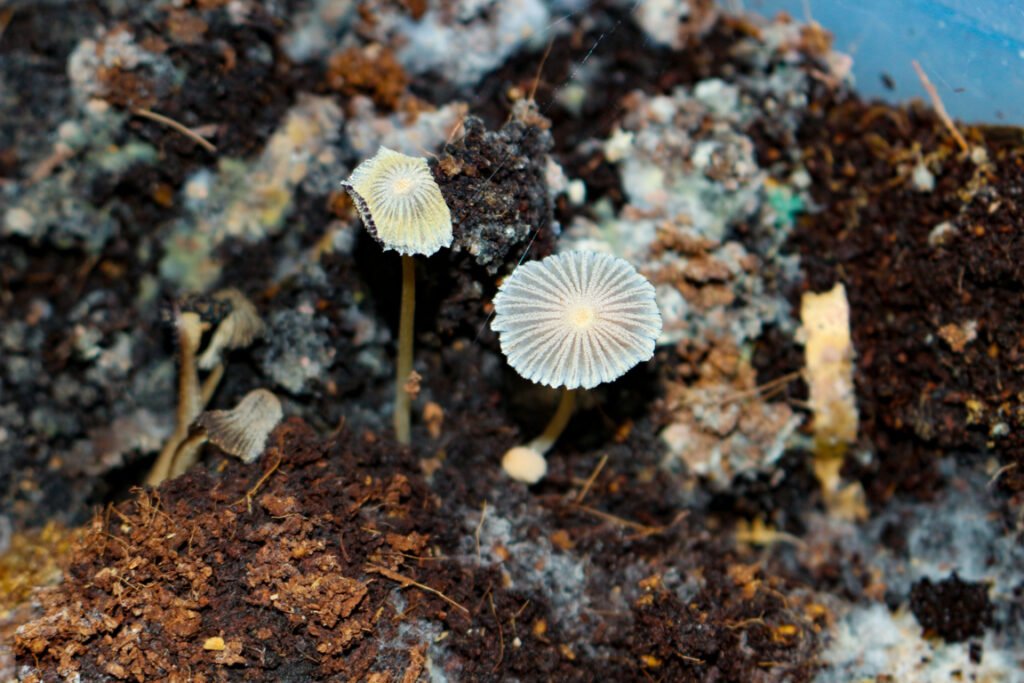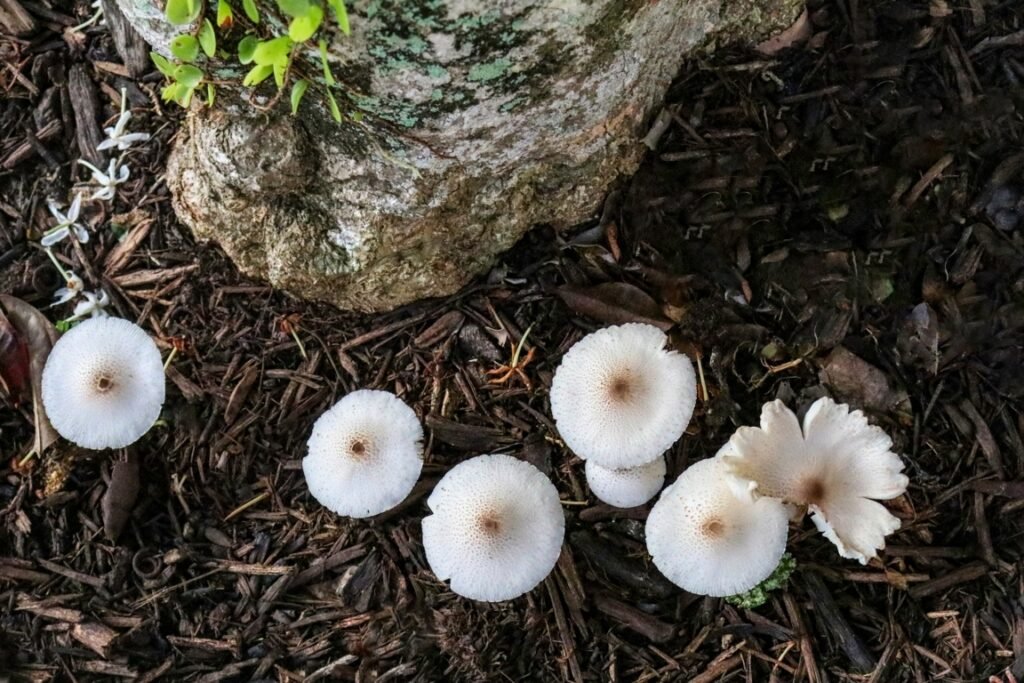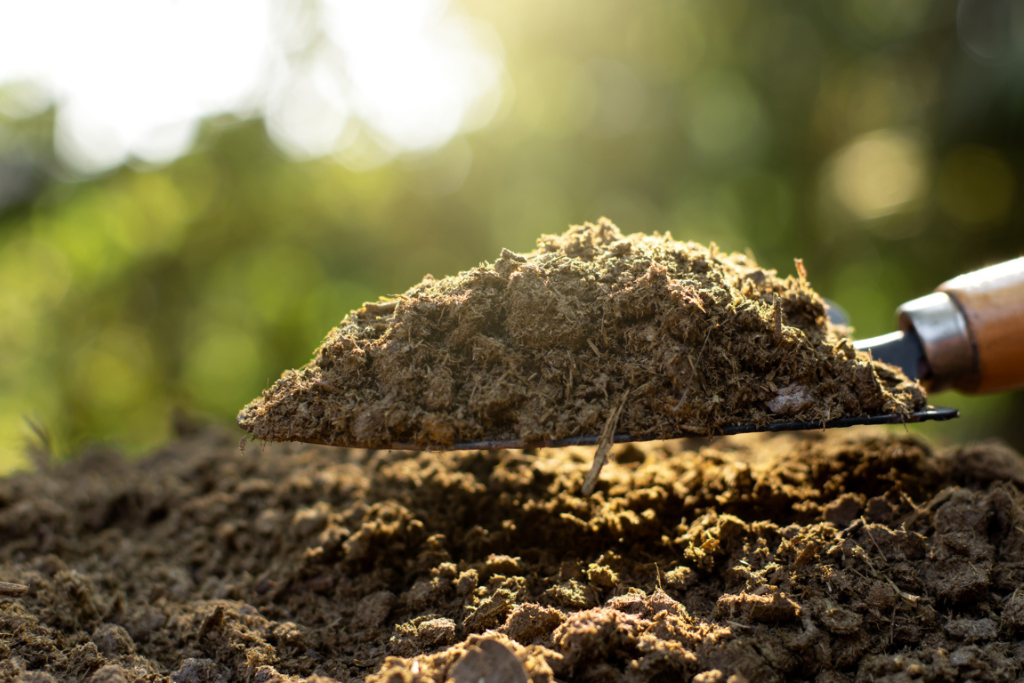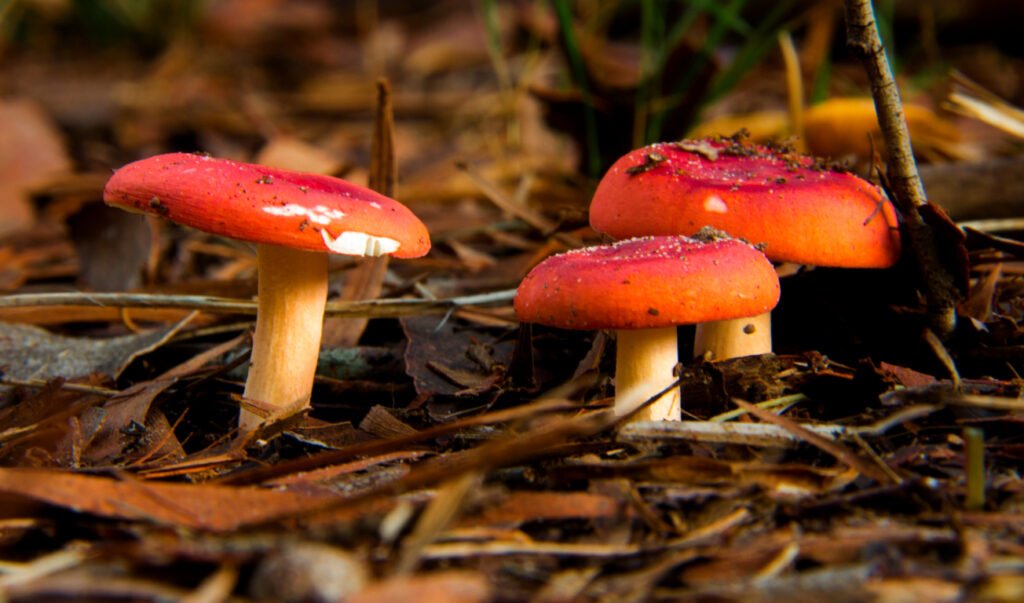

The age-old question that has sparked heated debates and endless arguments among gardeners – Cow manure vs mushroom compost. If you’re struggling to decide between the two types, then this guide will take you through all the pros, cons, and quirks of these composting tools. By the end of this guide, you’ll be able to make a decision on which reigns supreme.
So, let’s don our thinking caps and examine each option with a fine-toothed comb and poke and prod at their pros and cons until we determine the clear winner. Will it be the tried-and-true cow manure or the newcomer mushroom compost? Only one way to find out! So, sit back, relax, and let’s get composting!
Comparing Cow Manure vs Mushroom Compost: Which is Right for you?
Deciding between cow manure and mushroom compost for your garden can be difficult. To help you decide, let’s examine both options closely to weigh the pros and cons of each fertilizer choice.
1. Cow manure: the trusty old standby

For centuries, cow manure has been the preferred choice of gardeners and farmers due to its abundant availability. Not only is cow manure filled with organic material that provides nourishment for plants and soil alike, but it also introduces helpful bacteria and fungi into your environment which in turn helps enrich the plant’s access to essential nutrients from its surrounding area.
Cow manure ingredients
Cow manure is composed of several elements, such as the organic matter in grass and hay that cows ingest. This mixture also contains animal waste products like urine and feces. As this organic material decomposes within the manure, nitrogen is released into the soil below – a compound that greatly accelerates plant growth while simultaneously promoting their healthiness!
It also contains several trace elements and minerals, such as phosphorus and potassium, that help nourish plants. Moreover, cow manure contains beneficial bacteria and fungi that can aid in improving the soil quality.
Cow manure is a fantastic way to naturally enhance your garden’s soil. This organic matter will break down the clay particles into air pockets for plant roots to access oxygen, and increase water retention capacity in your soil. Additionally, it can help protect against bugs and ailments that may harm your plants!
How to get the most of your cow manure?
If you want the best results from cow manure, composting it is a must. Composted cow dung breaks down essential nutrients for your plants and reduces unpleasant odors. Most significantly, it’s much safer to use in gardens than untreated or raw manure!
Pros of cow manure:
Cow manure is an ideal organic fertilizer for all types of gardens, from lawns to vegetable patches. Not only does it enhance the texture of soil and raise its nutrient content but it can also be used on flower beds or other locations where food or flowers are cultivated. It’s a natural way to ensure lush blooms and tasty edibles!
Not only is cow manure a potent fertilizer, but it also doubles as an effective pest deterrent! You can use this natural solution to keep pesky insects and bugs away from your plants and garden. Cow manure contains compounds that are a natural enemy of aphids, mites, ants and other uninvited intruders – so why not give it a try? With its remarkable dual-purpose function you can grow healthy crops with peace of mind knowing your home will be free from pests.
It helps to improve the water-holding capabilities of soils and increase their ability to retain nutrients in a form that plants can use. Moreover, it is good at improving drainage and aeration in soils too.
You can reduce the use of hazardous chemicals that are detrimental to your health, plants, and environment by using cow manure as a fertilizer. Not only does cow manure help keep you safe from potential risks posed by chemical fertilizers and pesticides but also assists in protecting our planet from being contaminated with such substances.
Cons of cow manure:
Due to the pungent aroma of cow manure, it is essential that you keep it far away from your home; not only will this help alleviate unpleasant odors, but it may also prevent pests and animals from entering the area.
If left untreated, cow manure can contain hazardous bacteria and parasites which may be spread to humans or other creatures. To prevent this from occurring, it is absolutely essential that the composting process of cow manure is thoroughly conducted.
2. Mushroom compost: the new kid on the block

Mushroom compost is a relatively new addition to the gardening world. It is made up of organic materials such as straw, sawdust and corn cobs that are mixed with fungi spores and other beneficial additives. The fungi helps break down the organic material and encourage healthy plant growth. It also provides beneficial microbes that can help your soil retain more nutrients and moisture.
Mushroom compost Ingredients
The ingredients used in mushroom compost are essential for the success of your plants and gardening efforts. Without them, you’ll be missing out on the maximum potential of your garden.
They are usually a mix of organic material such as straw, peat moss, gypsum, lime and other materials that provide essential nutrients to the soil.
Straw is a great source of organic matter, helping to improve the structure of your soil. It also helps to prevent erosion, as it binds and retains water.
- Peat moss is another popular ingredient in mushroom compost, as it provides essential nutrients and improves the moisture content of soil.
- Gypsum helps to break up clay soils and make them easier to work with.
- Lime helps to neutralize acidic soils and provide essential nutrients like calcium, magnesium, and potassium.
It also contains an array of organic materials such as sawdust, manure, coffee grounds, seaweed and other plant matter. Each element contributes to the general wellbeing of your plants in a significant manner.
How to get the most of your mushroom compost?
Unlocking the full potential of your mushroom compost is simple: ensure it’s ready for use by combining it with aged manure or other organic material. This mix breaks down its nutrients, making them more accessible to plants and enabling you to get the most out of your investment in mushroom compost.
Pros of mushroom compost:
If you’re looking to give your garden soil an extra boost of health and fertility, look no further than mushroom compost! This special type of compost is overflowing with beneficial humus which helps enhance the structure of the soil for optimal drainage and aeration. Plus, it increases moisture retention capacity and nutrient levels too – what more could a gardener want?
Utilizing peat moss as a soil conditioner is an optimal way to create the perfect environment for plants. It maintains the pH balance of soils, enabling them to absorb more vital nutrients. Additionally, it improves soil structure and decreases compaction—allowing roots to take hold with ease.
By adding mushroom compost to your garden, you are enriching the soil with beneficial microorganisms that break down organic matter and improve fertility. Not only does this ensure optimal growth for plants, but it also helps protect them from pests and diseases.
Nourish your plants with mushroom compost, providing them with vital nutrients such as phosphorus, calcium and magnesium. As the age of the mushroom compost increases, these nutrient levels may differ based on the type of mushrooms used in its production.
Cons of mushroom compost:
If you’re looking for mushroom compost, it may be difficult to come by since not many stores carry it. To ensure the best quality and nutrient content possible, make sure to purchase your mushroom compost from a reliable supplier who provides detailed analysis of their product as well as guarantees its quality.
It tends to be high in nitrogen, which can cause leaching if it is not incorporated properly into the soil. Too much nitrogen can also cause plants to become over fertilized, leading to poor growth and development.
Mushroom compost may contain weed seeds, which could spread unwanted species throughout your garden.
Things to Consider When Choosing Between: Cow Manure vs Mushroom Compost

Making the choice between cow manure and mushroom compost can be complicated, so here are some tips that may help you decide:
Nutrient value:
Cow manure provides a good source of nitrogen, phosphorus and potassium, while mushroom compost provides a higher concentration of micronutrients.
Ease of use:
Cow manure is easy to spread and can be applied directly to the soil. Mushroom compost needs to be further processed before use, which can add an extra step in the process.
Availability:
Depending on where you live, cow manure might be more readily available than mushroom compost. Also, buying in bulk is often cheaper with cow manure than it is with mushroom compost.
Cost:
Cow manure tends to be less expensive than mushroom compost, especially when you purchase it in bulk. However, you may need to factor in the cost of transportation and/or processing if you decide to go with mushroom compost.
So which is the better choice for you? If you’re looking for an affordable and easy-to-use option, cow manure is probably your best bet. On the other hand, if you want a more nutrient-rich fertilizer that provides additional benefits such as improved soil structure and moisture retention, mushroom compost may be the better choice.
Ultimately, the decision is yours. Whichever way you go, adding organic material to your soil is sure to benefit your plants and help them to grow strong and healthy.
When is it Best to Use Cow Manure?

Cow manure is the ideal choice if you’re looking to quickly and effectively neutralize soil pH. Its beneficial bacteria helps to lower the acidity levels in your garden, creating more alkaline conditions that are perfect for growing leafy greens, root vegetables and other food-bearing plants. Additionally, cow manure can be used as a great activator for hot-composting systems, providing a nutrient-rich soil amendment for the perfect nourishment of your garden.
Tip: For best results, apply cow manure to your garden before planting season begins, as this will give the material enough time to break down and create the perfect environment for healthy plant growth.
When is it Best to Use Mushroom Compost?

For acidic soils, it’s especially beneficial since it helps counteract the effects of acidity and provide a more neutral pH balance for your plants to flourish. Additionally, adding mushroom compost to topsoil layers prior to seeding lawns is an easy way to enrich the soil and give grasses an advantage. The compost adds nutrients and retains moisture, allowing the seedlings to thrive. Not only will you see healthier lawns, but weeds won’t stand a chance against your new mushrooms!
Mushroom compost can also help create healthy root systems for vegetables that don’t do well in acidic soil. Brassicas, like broccoli and cauliflower, are particularly fond of mushroom compost. Plus, it’s a great way to give your veggies the nutrition they need for optimal growth.
Lastly, mushroom compost is a great choice for container gardening and raised beds. It’s lightweight and easy to work with, making it ideal for these types of gardens.
Conclusion
This concludes our Cow manure vs mushroom compost guide. Ultimately, deciding which type of fertilizer is best for your soil and plants depends on their individual needs. If you need to slowly add nutrients to the ground, cow manure will be ideal; whereas if you’re searching for quick-acting fertilization with a boost in nitrogen levels, mushroom compost should do just fine. For either option though, create an effective plan that specifically addresses the requirements of your garden!
Frequently Asked Questions (FAQ)
Black cow manure vs mushroom compost: which is better for my lawn?
If you’re wondering which fertilizer is most suitable for your lawn, the answer relies on assessing its specific requirements. Black cow manure contains a wealth of nitrogen, phosphorus and potassium but may also be teeming with weed seeds – so watch out! Mushroom compost, however, can offer numerous advantages; it comprises plenty of organic matter like aged wood chips plus soil to enhance the quality of your grass’s dirt while remaining free from weed seed presence – meaning no pesky weeds!
Cow manure vs chicken manure vs mushroom compost: which one to use?
If your goal is to add considerable amounts of nitrogen to the soil, cow manure could be the optimal selection. Alternatively, chicken manure contains a good amount of nitrogen as well, it still falls short compared to that available in cow dung. However, if you’re looking for an even distribution of minerals and nutrients, mushroom compost might be preferable. It boasts not only high levels of fungi but also advantageous microorganisms which can help sustain healthy soils.
Mushroom compost vs cow manure for lawns: which is better?
If you’re looking to access the benefits of organic material for your lawn, mushroom compost may be a wise choice. However, if it’s increased nitrogen levels that you need, then cow manure is undoubtedly the better option. Mushroom compost still offers many advantages for soil health and should not be overlooked but bear in mind: when it comes to boosting nitrogen content, nothing can beat fresh cow dung!
Screened cow manure vs mushroom compost: Which should I use?
Looking for a nutritious boost and quick action fertilization? Then you need to consider both screened cow manure and mushroom compost. Cow manure works as an excellent slow-release fertilizer, while the latter replenishes nitrogen levels immediately along with other important nutrients. Depending on your soil type and plants, one might be more advantageous than the other – so do your due diligence in finding out which option is best suited for you!



